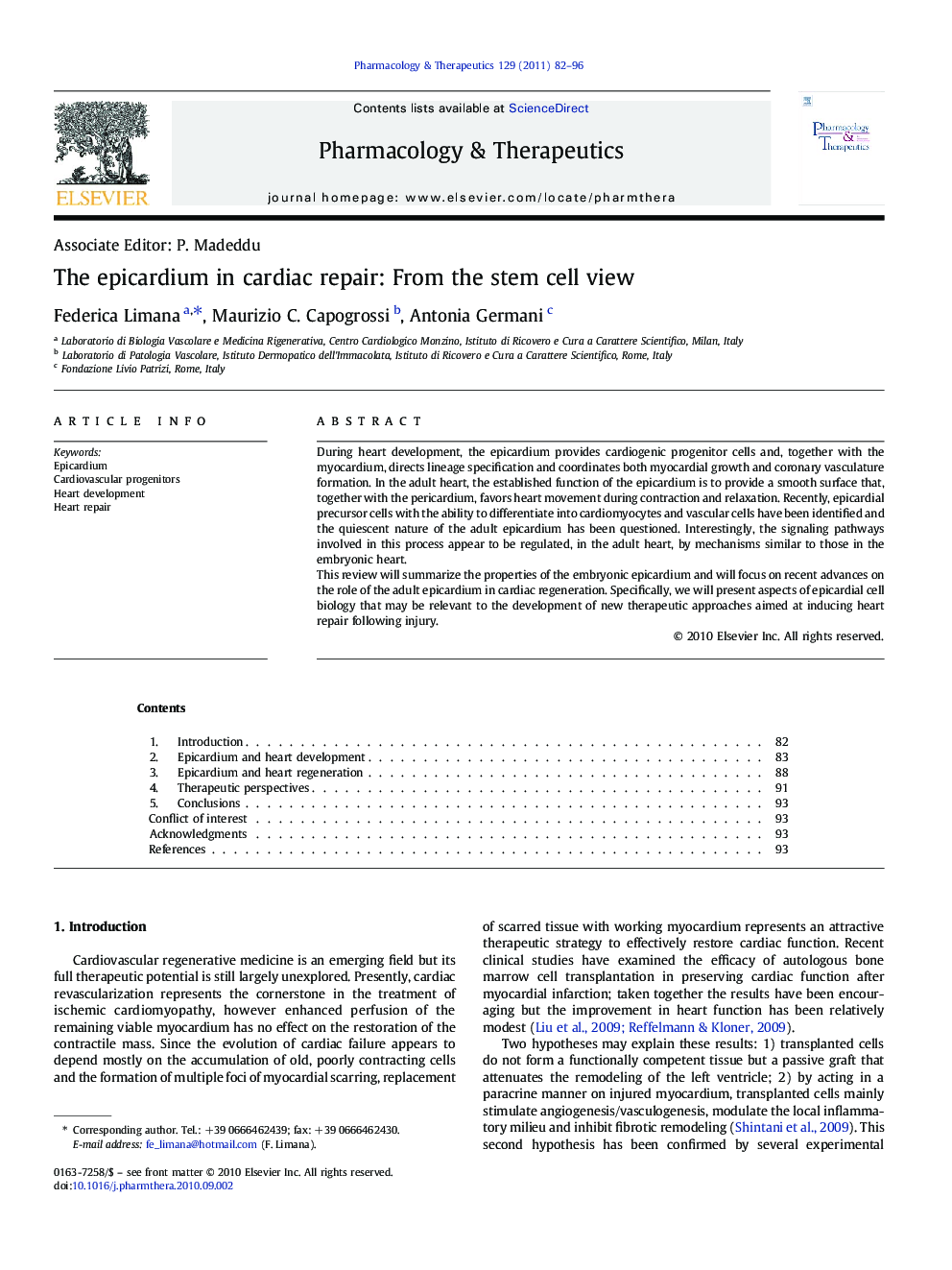| Article ID | Journal | Published Year | Pages | File Type |
|---|---|---|---|---|
| 2563466 | Pharmacology & Therapeutics | 2011 | 15 Pages |
During heart development, the epicardium provides cardiogenic progenitor cells and, together with the myocardium, directs lineage specification and coordinates both myocardial growth and coronary vasculature formation. In the adult heart, the established function of the epicardium is to provide a smooth surface that, together with the pericardium, favors heart movement during contraction and relaxation. Recently, epicardial precursor cells with the ability to differentiate into cardiomyocytes and vascular cells have been identified and the quiescent nature of the adult epicardium has been questioned. Interestingly, the signaling pathways involved in this process appear to be regulated, in the adult heart, by mechanisms similar to those in the embryonic heart.This review will summarize the properties of the embryonic epicardium and will focus on recent advances on the role of the adult epicardium in cardiac regeneration. Specifically, we will present aspects of epicardial cell biology that may be relevant to the development of new therapeutic approaches aimed at inducing heart repair following injury.
